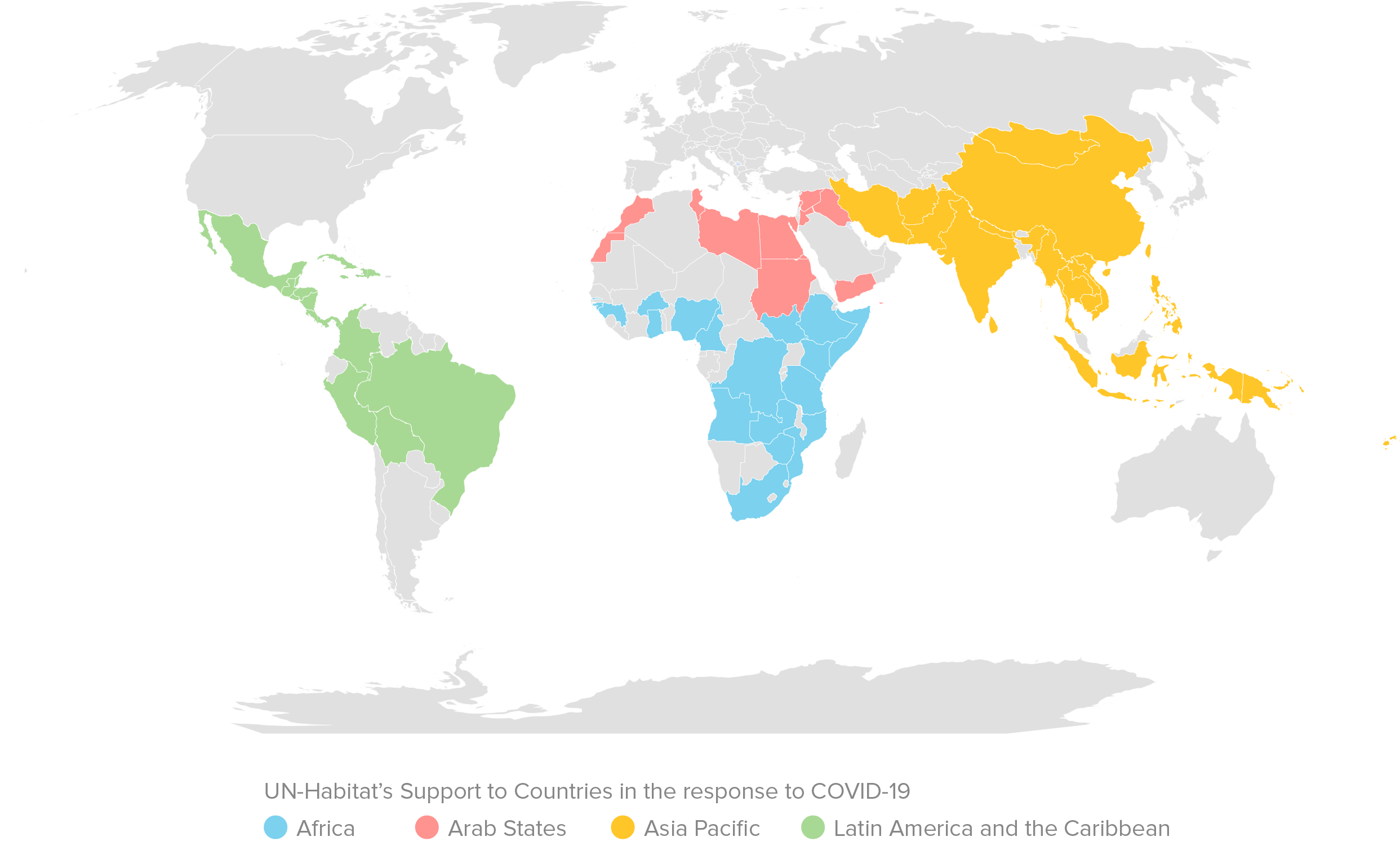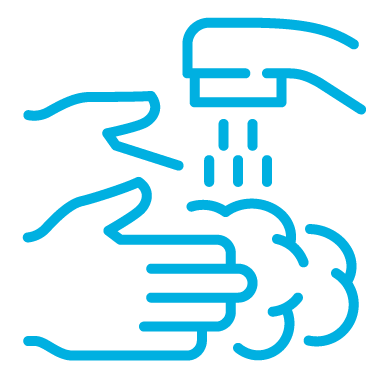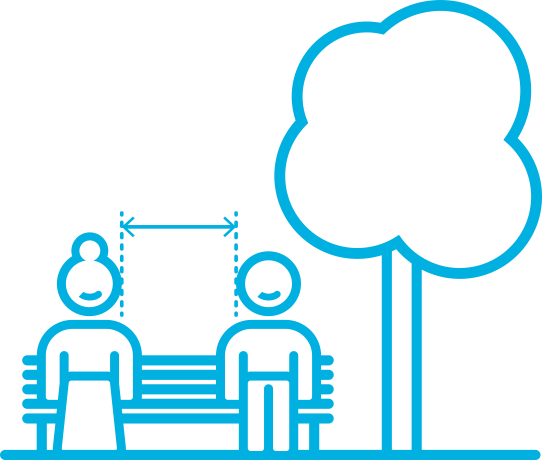UN-Habitat COVID-19 Response Report
The Report on UN-Habitat’s COVID-19 Response covers a range of immediate response and longer term recovery activities at the corporate, regional and country levels from March to August 2020. During that time, UN-Habitat supported the overall response to the pandemic in 37 countries and more than 250 cities, benefiting 6.8 million people,the majority being residents of slums and informal settlements.
UN-Habitat COVID-19 Response
UN-Habitat is responding to a growing volume of requests from both national and local governments to help them prepare for, prevent, respond to and recover from the COVID-19 pandemic. Building on more than 40 years of urban experience, much of it in humanitarian situations, we are focusing on the city-level response to the crisis.
UN-Habitat COVID-19 Policy and Programmatic Framework
UN-Habitat’s COVID-19 Policy and Programme Framework provides guidance for global, regional and country-level action. The framework is a key instrument to focus and scale UN-Habitat’s contribution to the overall response led by national and local governments, UN agencies and local partners. The framework will be updated as required by changing context and acquired learning or experience.
News and Stories
UN-Habitat and the COVID-19 Response

UN-Habitat Resources
- UN-Habitat Report on Cities and Pandemics: towards a more just, green and healthy future - Context and purpose
- UN-Habitat Report on Cities and Pandemics: towards a more just, green and healthy future - Programme
- UN-Habitat Report on Cities and Pandemics: towards a more just, green and healthy future - Virtual launch
- UN-Habitat COVID-19 Response Report of Activities September 2020
- UN-Habitat COVID-19 Response Report March – August 2020
- UN-Habitat Policy Statement on prevention of evictions during COVID-19
- Issue Brief COVID-19 through the Lens of Urban Rural Linkages-Guiding Principles and Framework for Action
- Spatial Planning Guidelines
- UN-Habitat Guidance on Public Space
- Solid Waste Strategy Response [EN]
- Solid Waste Strategy Response [FR]
- Solid Waste Strategy Response [SP]
- UN-Habitat and UNICEF interim technical note on WASH response in informal settlements
- COVID-19 in Africa Cities: Impacts, Responses and Policies
- UN-Habitat Discussion paper on COVID-19 Impact on Africa
- Impact of COVID-19 on livelihoods, food security & nutrition in East Africa - Urban focus
- UN-Habitat Lebanon Unions of Municipalities' COVID-19 Rapid Assessment Report
- COVID-19 Wuhan Guidance Papers-Emerging Experiences on Responding to COVID-19 in Chinese Cities and Townships
- Note: Decongestion of IDP settlements (Somalia)
- https://unhabitat.org/un-habitat-report-on-cities-and-pandemics-towards-a-more-just-green-and-healthy-future





